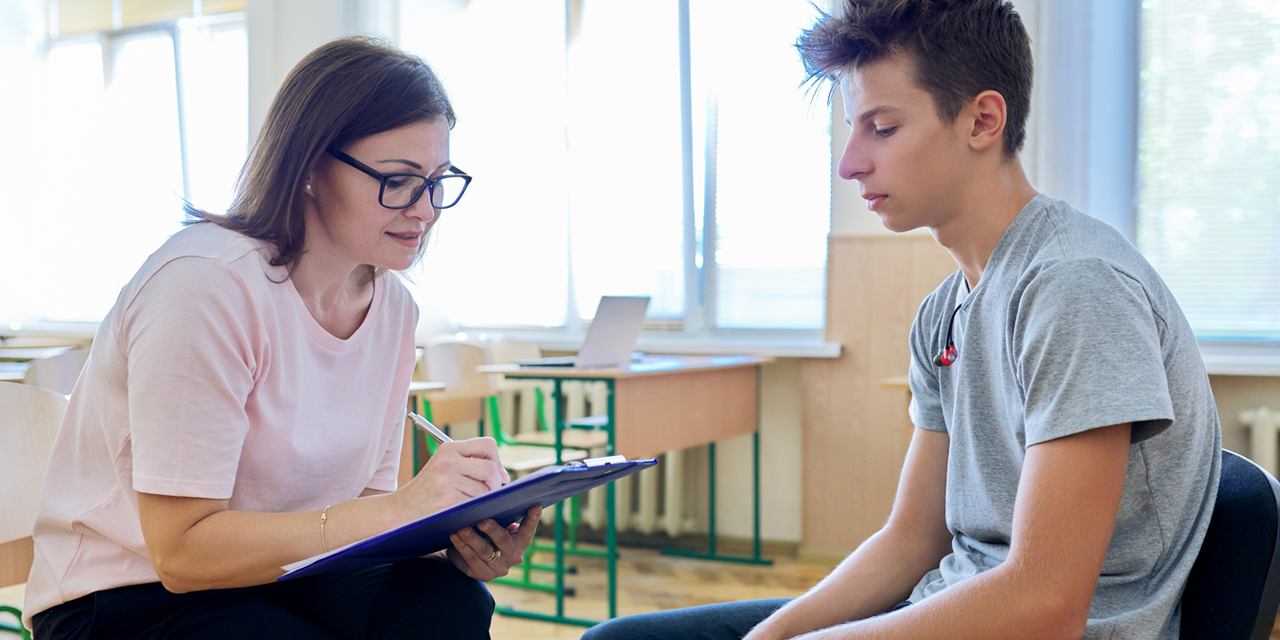National School Social Work Week is March 6-11
In honor of National School Social Work Week (SSWW), celebrated March 6-11, the NeMTSS team would like to recognize Nebraska’s school social workers and celebrate the impactful work they are doing to help their students, families and school communities — especially as we have navigated the challenges of the pandemic.
We would also like to take this opportunity to raise awareness about who school social workers are, what they do and how they contribute to successful multi-tiered systems of support (MTSS).
Who are school social workers?
School social workers are trained mental health professionals with master’s degrees in social work (MSW) who provide services related to a person’s social, emotional and life adjustment to school and/or society.
Many school social workers have also completed post-graduate hours and testing to become Licensed Mental Health Practitioners (LMHP). In Nebraska, individuals who hold both MSW and LMHP credentials can call themselves Licensed Clinical Social Workers (LCSW).
School social workers are the link between the home, school and community in providing direct services, as well as indirect services, to students, families and school personnel to promote and support students’ academic, social, emotional and behavioral success.
What do school social workers do?
The School Social Work Association of Nebraska surveyed its members in the 2018-19 school year and compiled data to show the main responsibilities of school social workers in Nebraska regarding support to students, families, school personnel and their communities:
View School Social Work in Nebraska Flyer
How do school social workers contribute to the NeMTSS Framework?
School social workers play an integral role in all levels of their school’s multi-tiered system of support by:
- Promoting a school climate and culture conducive to student learning and teaching excellence.
- Providing evidence-based (universal, targeted and intensive) education, behavior and mental health services.
- Maximizing access to school-based and community-based resources
Here is a breakdown of how school social workers contribute to the three MTSS tiers:
Tier 1
- Universal screening for academic, behavioral and emotional barriers to learning to ensure early identification and early intervention.
- Infusion of social–emotional learning into the classroom/curriculum.
- Staff development related to identification of mental health concerns and referral processes.
- School-wide positive behavior interventions and supports with a focus on creating a positive school climate.
Tier 2
- Suicide risk/threat assessment.
- Individual/group counseling and skill building groups.
- Development and monitoring of individual student behavior intervention plans.
- Consultation with teachers and/or families to address mental and behavioral health problems.
Tier 3
- Direct therapeutic services to all students in need, including individual and group counseling, even in the absence of a clinical diagnosis or identified educational disability.
- Psychological assessment of social, emotional and behavioral problems.
- Crisis intervention/crisis response.
- Facilitation of collaboration between school professionals and community agencies, and other outside mental and behavioral health providers.
What’s the difference between school social workers, school counselors and school psychologists?
School social workers, school psychologists and school counselors are often able to hold similar responsibilities to best support their students, families and colleagues. However, there are some general differences across the professions.
School social workers use a strengths based, whole child and systems focused lens when identifying, advocating for, and connecting students and families with supports. They can provide services for all students. School social workers also have the background to fill various roles in schools and districts, including those related to McKinney-Vento, attendance, behavior, safety and substance use.
School psychologists are often more involved in student assessment and evaluation and use data to help inform services. School counselors have the additional focus on college, career and community readiness. Read more about school psychologists from our previous blog.
To learn more about school social workers and how you can help celebrate School Social Work Week, visit the School Social Work Association of America and School Social Work Association of Nebraska’s websites.
Join the social media conversation by using the hashtags #TimetoShine and #SSWWeek2022.



